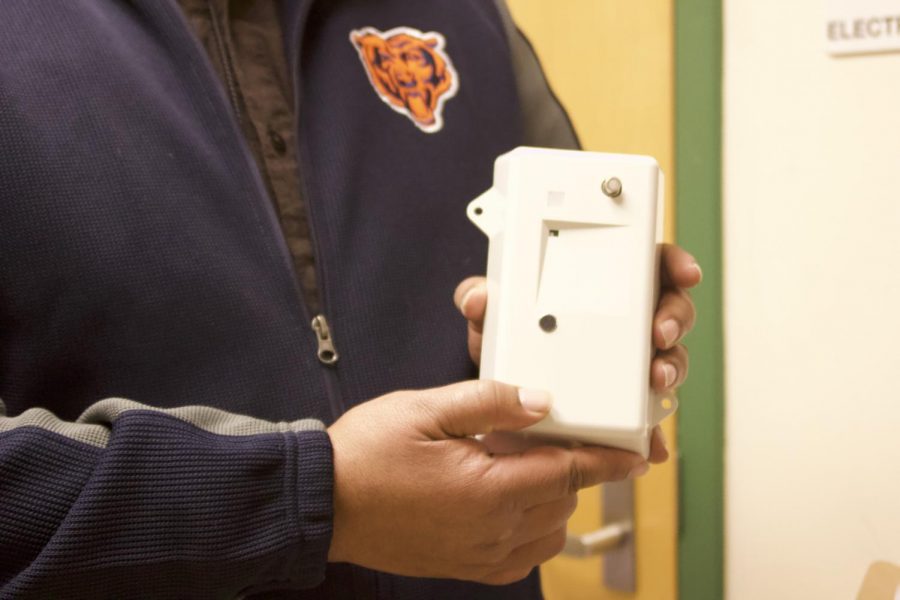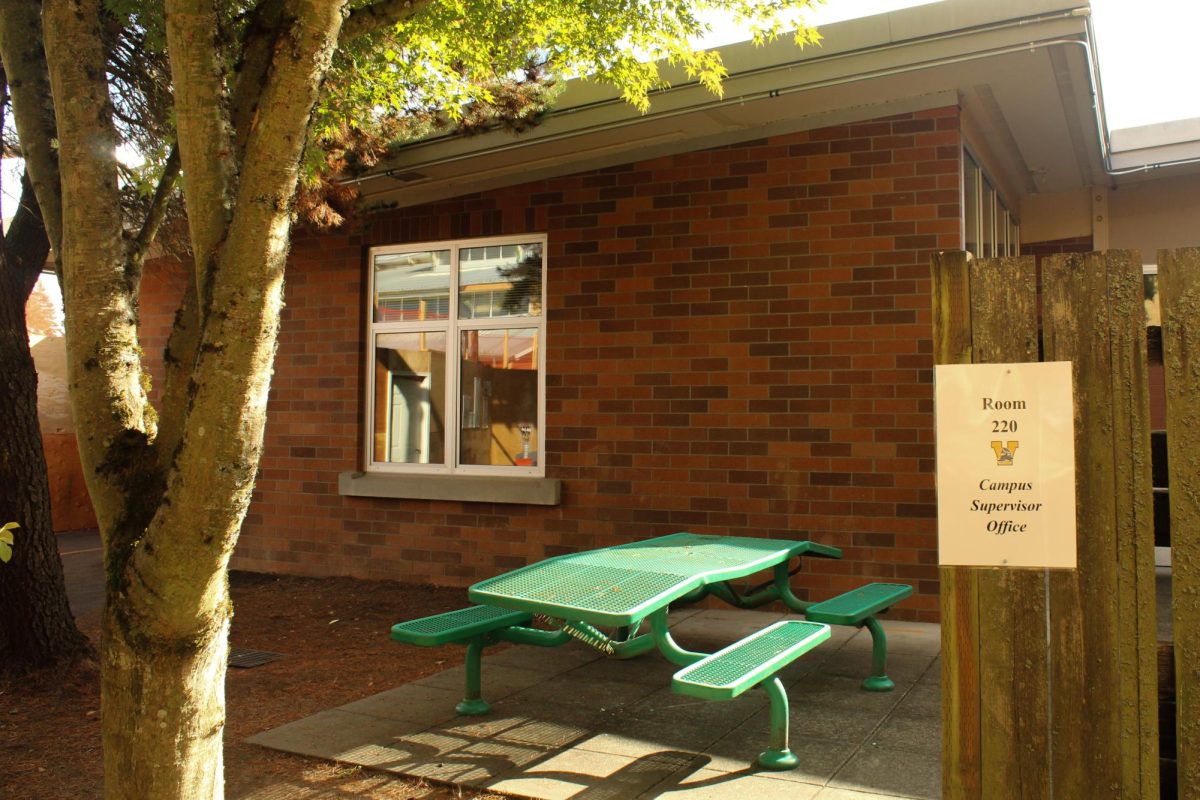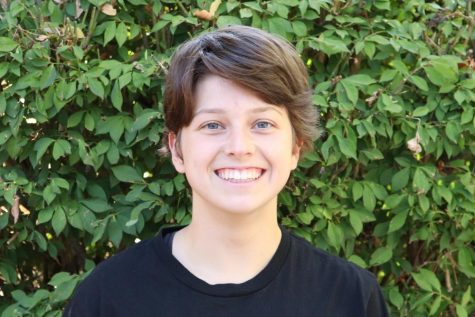Three vapor sensors that can detect vape clouds, cigarette smoke, marijuana smoke and noise escalation were installed on March 4 in various bathrooms around the school. Inglemoor is the first school within the district to employ this technology, and the school Technology Department expect them to become operational within the next week.
The sensors, purchased from the company Fly Sense, are connected to a Wi-Fi network and send out a text to multiple numbers listed in the system with a timestamp and location as soon as it detects a concern. If a student is seen exiting the bathroom during the time of the incident, they would qualify for reasonable suspicion for doing a search, said Principal Adam Desautels.
“We have cameras outside of the bathrooms,” Desautels said, “so we don’t have to catch them in the moment.”
The sensors’ cost came out of the building’s overflow budget. Desautels said that kids feeling safe everywhere on campus is a priority, so the school has been able to pay for it. The only other option would be to employ more campus supervisors, Calhoun said, and that would be much less cost effective.
The vape sensors also measure noise escalation, so the administration will get a text if are people fighting, arguing or screaming at each other, Desautels said. However, the devices will not record sound, only measure it.
The reasoning for this change is that the school is not seeing improvement regarding security concerns, Calhoun said. Administration reached out to both students and parents to try and figure out ways to stop the vaping and fights in the bathrooms. Students have been “tearing doors off of the stalls,” he said, and it’s gotten to the point where students no longer feel safe.
There’s a bathroom in between the language arts building and the study lab that was made into a safe place for transgender students to use the bathroom freely, said Calhoun, but now it’s used primarily for vaping. “Using the restroom should be a basic right,” he said. “It’s not something that should take up so much of our time or concern students.”
The sensors will have to be run on a trial and error basis, Desautels said. “It’s possible there will be other vapors [recognized by the sensors],” Desautels said, “I don’t know if kids are spraying perfume if it will sense it or not — we’ll just have to learn.”
Junior Zoe Chaiken said that she believes it’s the school’s duty to control vaping for students’ health.
“If we don’t install measures to prevent against kids getting addicted to nicotine it kind of seems like the education system is okaying it,” said Chaiken.
In the end, the goal is to make the behavior stop, Desautels said. The administration wants the vaping and fighting to end so that the bathrooms are safe for kids.
“It’s a way for us to try to be proactive,” Desautels said.
















